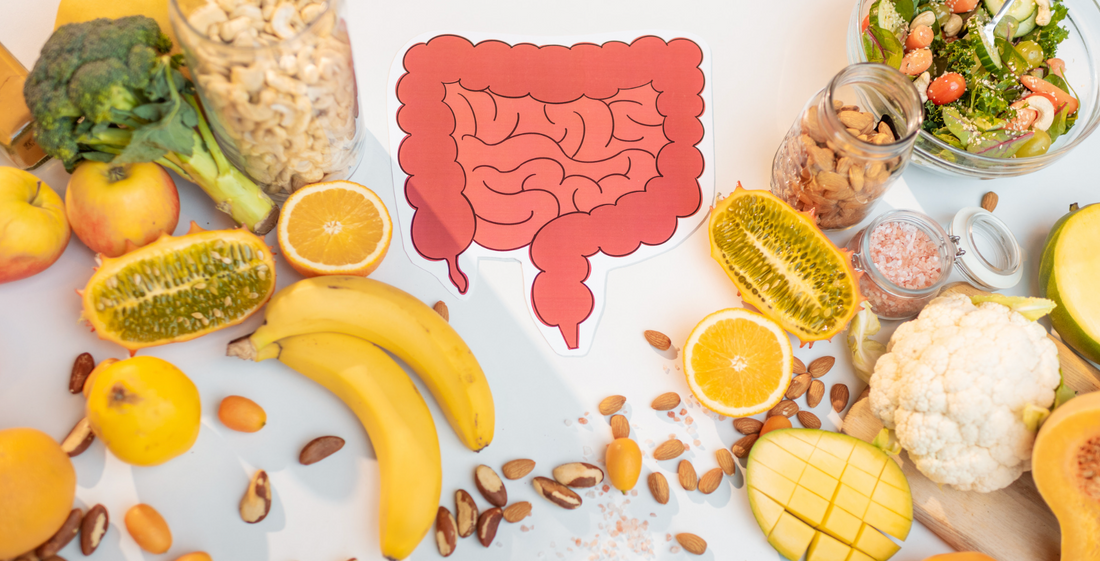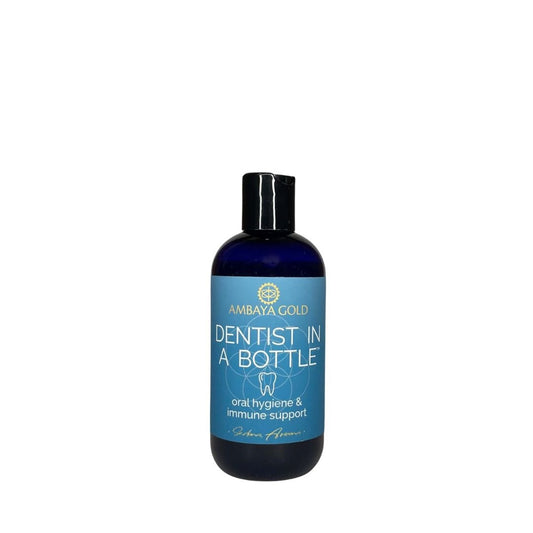Maintaining a healthy gut is essential for overall well-being. Your gut microbiome, which consists of trillions of bacteria and other microorganisms, plays a crucial role in digestion, immunity, mental health, and more (as everything in the body is consciously and harmoniously linked). When bad bacteria outnumber the good, it can lead to various symptoms that may affect your quality of life. Understanding these symptoms and how to support a healthy gut can help you maintain balance and improve your overall health.
Common Symptoms of Bad Gut Bacteria

1. Digestive Issues:
- Bloating and Gas: An imbalance in gut bacteria can lead to excessive gas production, resulting in bloating and discomfort.
- Diarrhea or Constipation: Disruptions in the gut microbiome can cause irregular bowel movements, leading to either diarrhea or constipation.
- Indigestion: Poor gut health may cause indigestion, with symptoms like stomach pain and heartburn.
2. Fatigue and Low Energy:
- Fatigue: An unhealthy gut can affect nutrient absorption, leading to low energy levels and chronic fatigue.
3. Food Intolerances:
- Increased Sensitivities: Imbalanced gut bacteria can make it difficult for your body to digest certain foods, leading to food intolerances or sensitivities.
4. Mental Health Issues:
- Anxiety and Depression: There is a strong connection between gut health and mental health. An unhealthy gut may contribute to symptoms of anxiety, depression, and mood swings.
5. Weakened Immune System:
- Frequent Infections: Since a significant portion of your immune system is located in your gut, an imbalance in gut bacteria can weaken your immunity, making you more susceptible to infections.
6. Skin Problems:
- Acne and Eczema: Poor gut health can manifest as skin issues, such as acne, eczema, or other inflammatory skin conditions.
What Causes Bad Gut Bacteria?

1. Poor Diet: Diets high in sugars and processed foods can feed harmful bacteria, allowing them to proliferate. These foods can favor the growth of pathogenic bacteria. Also, a diet low in fiber can starve good bacteria, giving the bad bacteria an opportunity to take over.
2. Overuse of Antibiotics: Antibiotics are essential for fighting bacterial infections, but they can also kill off beneficial bacteria in your gut. This disruption can allow harmful bacteria to flourish, leading to an imbalance.
3. Longterm Stress: Stress can negatively affect the gut-brain axis, the communication network between your gut and brain. This can alter gut motility and the secretion of digestive enzymes, creating an environment where harmful bacteria can thrive.
4. Lack of Sleep: Your gut microbiome is influenced by your body's circadian rhythm. Poor sleep or irregular sleep patterns can disrupt this rhythm, leading to changes in gut bacteria composition.
5. Environmental Factors: Exposure to environmental toxins, such as pesticides, pollutants, and chemicals in processed foods, can harm the gut lining and promote the growth of harmful bacteria.
6. Sedentary Lifestyle: A lack of physical activity can lead to reduced diversity in the gut microbiome, allowing bad bacteria to overpopulate.
How Bad Gut Bacteria Affects the Body

When the balance of good and bad bacteria in your gut is disrupted, it can lead to a state known as dysbiosis. Here's how this can affect your body:
1. Weakened Gut Lining: The overgrowth of harmful bacteria can damage the gut lining, making it more permeable. This condition, often referred to as "leaky gut," allows toxins and undigested food particles to enter the bloodstream, triggering an immune response and inflammation.
2. Impaired Digestion: Bad bacteria can interfere with the digestive process, leading to symptoms like bloating, gas, and diarrhea. They can also inhibit the absorption of essential nutrients, leading to deficiencies and fatigue.
3. Immune System Disruption: Since a significant portion of your immune system is housed in the gut, an imbalance in gut bacteria can weaken your immune defenses. This makes you more susceptible to infections and may contribute to autoimmune conditions.
4. Altered Metabolism: Dysbiosis can affect the way your body metabolizes food, leading to weight gain or difficulty losing weight. It can also contribute to metabolic disorders like insulin resistance.
5. Mood and Mental Health Issues: The gut-brain connection means that an unhealthy gut can directly impact your mood and mental health. Dysbiosis has been linked to anxiety, depression, and cognitive impairments.
How to Maintain Healthy Gut Bacteria

Maintaining a healthy balance of gut bacteria is essential for overall health. Here are some steps you can take to support your gut health:
1. Eat a Balanced Diet: Incorporate probiotics which are live bacteria that can benefit your gut health. Foods like yogurt, kefir, sauerkraut, and kimchi are rich in probiotics. Also, make sure you are getting enough fiber. Fiber acts as a prebiotic, feeding the good bacteria in your gut. Include plenty of fruits, vegetables, whole grains, and legumes in your diet.
2. Limit Processed Foods and Sugars: Processed foods and high sugar intake can promote the growth of harmful bacteria. Focus on whole, unprocessed foods to support a healthy gut.
3. Stay Hydrated: Drinking plenty of water helps maintain the mucosal lining of the intestines and supports the balance of good bacteria in the gut.
4. Manage Stress: Longterm stress can negatively impact your gut health. Practices such as meditation, yoga, and deep breathing exercises can help manage stress levels.
5. Get Regular Exercise: Physical activity promotes a healthy gut by increasing the diversity of bacteria in your gut microbiome.
6. Get Enough Sleep: Poor sleep can disrupt your gut health. Aim for 7-8 hours of quality sleep each night to support a healthy microbiome.
7. Consider Prebiotic and Probiotic Supplements: Prebiotic and probiotic supplements can help support gut health. Consult with a healthcare provider before starting any new supplements.
Maintaining a healthy gut is key to your overall well-being. By recognizing the symptoms of bad gut bacteria and taking steps to support a healthy gut microbiome, you can improve your digestion, boost your immune system, and enhance your mental health. Remember to consult with a healthcare professional before making any significant changes to your diet, exercise, or supplement routine.
Disclaimer: This blog is for informational purposes only and is not intended to diagnose, treat, cure, or prevent any disease. Always consult with a qualified healthcare provider before making any changes to your health regimen.









